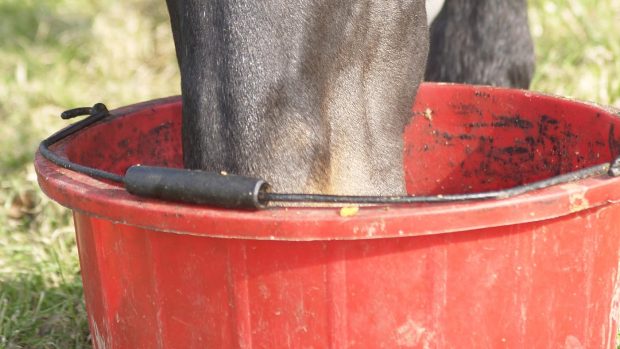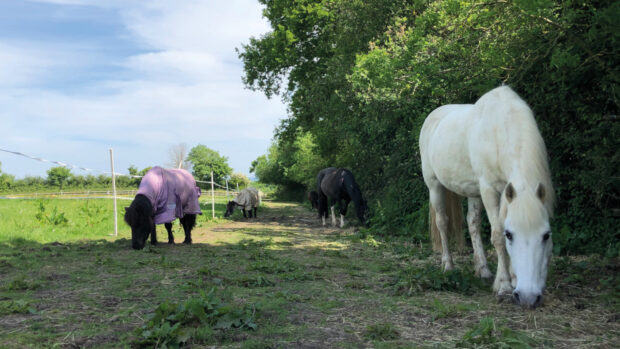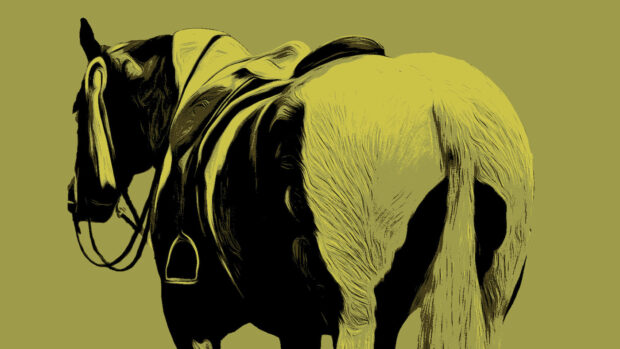Q: My 15hh Welsh Cob is continually overweight. I have restricted her grazing to half an acre and she’s getting no hard feed or hay at all. Should I be feeding her hay over the winter or will she survive on grass alone? She’s been off work for a few months with a knee injury but will soon come into work again.
Christine Smy replies: You’re not alone with this problem. Welsh Cobs evolved to survive on the Welsh hills, foraging for whatever they could find and often surviving on very poor quality grasses.
As a result, their metabolic system works very efficiently, laying down excess calories as fat to keep warm. For your mare to lose weight, you need to reduce her calorie intake and increase her exercise.
As your mare has been off work with an injury, it’s important you increase her exercise slowly, but when you’re hacking out, make sure she’s not just slopping along. If you have the facilities, try lungeing for twenty minutes before you ride. This will help to burn up the extra calories.
As for putting your mare on a diet during winter: shemay be able to manage by grazing alone but will not thrive. Once the temperature drops below 50øC the grass will stop growing and will lose nutritional value so her diet will be deficient in high quality protein, minerals and vitamins. You mayalso find she develops a large ‘grass belly’.
Instead I’d suggest you limit the grazing and feed good quality hay. This year’s hay is, on the whole, exceptional, offering good levels of fibre and general nutrition. However, to keep her weight down you should not feed the hay ad libitum, but restrict it to two to three slices a day.
If your mare has plenty of natural energy she won’t need concentrates, but you’ll need to give her a good broad spectrum supplement. This will supply the minerals and vitamins the hay lacks such as zinc, copper, selenium, iron and vitamin E.
However, if your mare is becoming lazy, feed her a concentrate designed for a horse in light or medium work. If you feed around 2kg (4lb) a day, you won’t need a supplement.
Come spring, limit her grazing by turning her out with a bucket muzzle on during the day.
This allows minimal grazing but will encourage her to exercise. She will have to be stabled during the night with limited hay – one to two slices. Again, a supplement won’t be necessary if you’re feeding concentrates.
Other ideas such as strip grazing or putting sheep in the field may prove ineffective as your mare is an exceptionally good doer.



